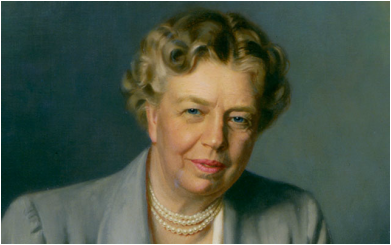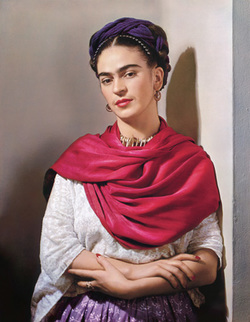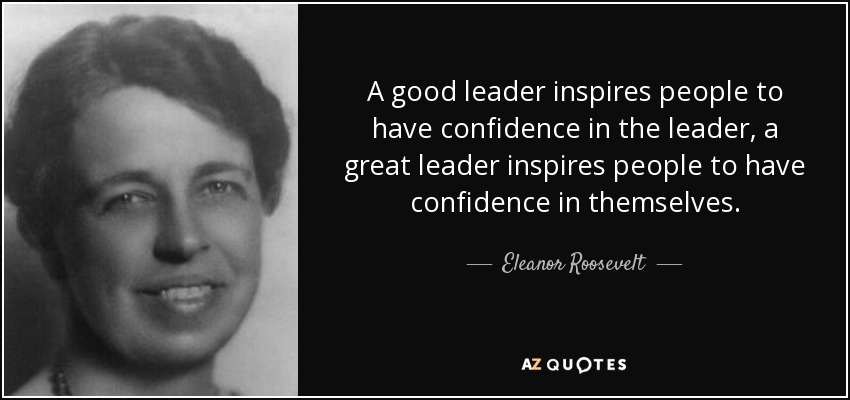|
1 Comment
 Today, we celebrate the life and legacy of the great Eleanor Roosevelt. Thanks to reader Gloria for suggesting her! Anna Eleanor Roosevelt was an American politician, diplomat, and activist. She was the longest-serving First Lady of the United States, and served as United States Delegate to the United Nations General Assembly from 1945 to 1952. President Harry S. Truman later called her the "First Lady of the World" in tribute to her human rights achievements. Roosevelt had an unhappy childhood, suffering the deaths of both parents and one of her brothers at a young age. She married her fifth cousin once removed, Franklin Delano Roosevelt, in 1905. She regularly made public appearances on her husband's behalf, and as First Lady, she significantly reshaped and redefined the role of that office during her own tenure and beyond, for future First Ladies. Having known all of the twentieth century's previous First Ladies, she was seriously depressed at having to assume the role, which had traditionally been restricted to domesticity and hostessing. Eleanor's distress at these precedents was severe enough that Hickok subtitled her biography of Roosevelt "Reluctant First Lady". Though widely respected in her later years, Roosevelt was a controversial First Lady for her outspokenness, particularly her stance on racial issues. She was the first presidential spouse to hold press conferences, write a syndicated newspaper column, and speak at a national convention. On a few occasions, she publicly disagreed with her husband's policies. She launched an experimental community at Arthurdale, West Virginia, for the families of unemployed miners, later widely regarded as a failure. She advocated for expanded roles for women in the workplace, the civil rights of African Americans and Asian Americans, and the rights of World War II refugees. Following her husband's death, Roosevelt remained active in politics for the rest of her life. She pressed the United States to join and support the United Nations and became its first delegate. She served as the first chair of the UN Commission on Human Rights, and oversaw the drafting of the Universal Declaration of Human Rights. Later she chaired the John F. Kennedy administration's Presidential Commission on the Status of Women. By the time of her death, Roosevelt was regarded as "one of the most esteemed women in the world." |
My thoughts:I write about power dynamics in relationships, the empowerment of women, and the ethical and moral dilemmas love can create in our lives. This is a space where I meditate on those themes and share them with the word. Who knows, my next novel may start right here... Archives
February 2017
Categories
All
|


 RSS Feed
RSS Feed